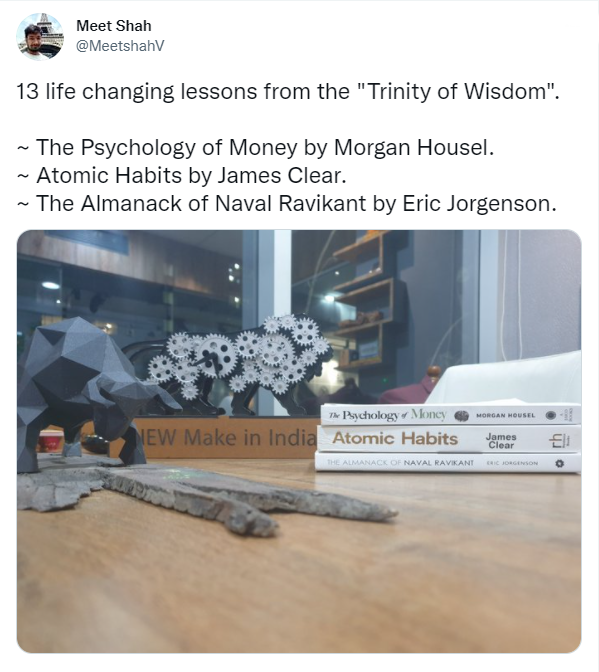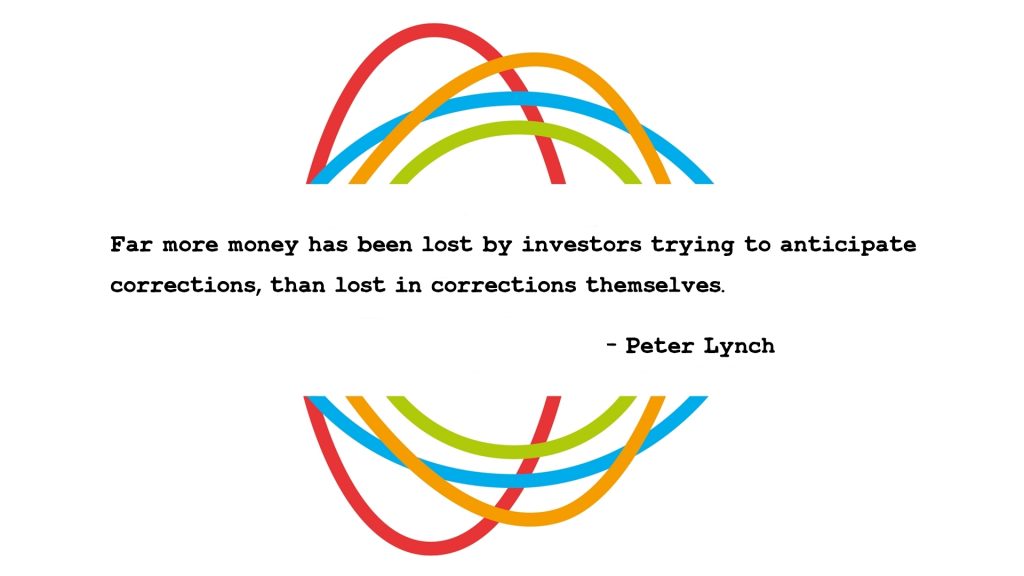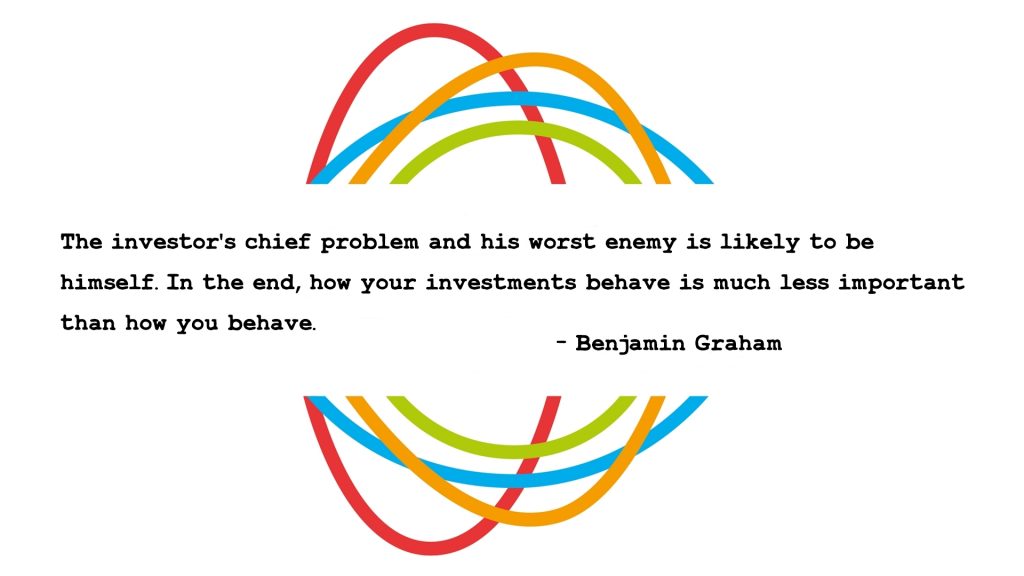
The Psychology of Money:
1) Doing well with money has a little to do with how smart you are & a lot to do with how you behave.
2) To grasp why people bury themselves in debt you don’t need to study interest rates; you need to study the history of greed, insecurity, & optimism.
3) The highest form of wealth is the ability to wake up every morning and say, “I can do whatever I want today.”
4) Your personal experiences with money make up maybe 0.00000001% of what’s happened in the world, but maybe 80% of how you think the world works.
5) Luck & risk are siblings. They are both the reality that every outcome in life is guided by forces other than individual effort.
6) There is no reason to risk what you have and need for what you don’t have and don’t need.
7) Getting money is one thing. Keeping it is another.
8) The trick when dealing with failure is arranging your financial life in a way that a bad investment here & a missed financial goal there won’t wipe you out so u can keep playing until the odds fall in your favor.
9) Everything has a price, but not all prices appear on labels.
10) Good investing is not necessarily about making good decisions. It’s about consistently not screwing up.
11) Planning is important, but the most important part of every plan is to plan on the plan not going according to plan.
12) Aiming to be mostly reasonable works better than trying to be coldly rational.
13) Spending money to show people how much money you have is the fastest way to have less money.

Atomic Habits by James Clear:
1) You do not rise to the level of your goals. You fall to the level of your systems.
2) Decide the type of person you want to be. Prove it to yourself with small wins.
3) Habits are the compound interest of self-improvement.
4) It’s only by making the fundamentals of life easier that you can create the mental space needed for free thinking and creativity.
5) Before we can effectively build new habits, we need to get a handle on our current ones.
6) The task of building a good habit is like cultivating a delicate flower one day at a time.
7) The task of breaking a bad habit is like uprooting a powerful oak within us.
8) Goals are good for setting a direction, but systems are best for making progress.
9) Good habits can make rational sense, but if they conflict with your identity, you will fail to put them into action.
10) The more pride you have in a particular aspect of your identity, the more motivated you will be to maintain the habits associated with it.
11) The purpose of setting goals is to win the game. The purpose of building systems is to continue playing the game.
12) All big things come from a small beginnings. The seed of every habit, is a single, tiny decision
13) Voltaire once wrote: The best is the enemy of the good.

The Almanack of Naval Ravikant:
1) Memory and identity are burdens from the past preventing us from living freely in the present.
2) My definition of wisdom is knowing the long-term consequences of your actions.
3) Making money is not a thing you do – it’s a skill you learn.
4) The hardest thing is not doing what you want – it’s knowing what you want.
5) Earn with your mind, not your time.
6) Desire is a contract you make with yourself to be unhappy until you get what you want.
7) You’re never going to get rich renting out your time.
8) Society will pay you for creating things it wants. But society doesn’t yet know how to create those things, because if it did, they wouldn’t need you.
9) No one can compete with you on being you. Most of life is a search for who and what needs you the most.
10) If they can train you to do it, then eventually they will train a computer to do it.
11) We waste our time with short-term thinking and busywork. Warren Buffett spends a year deciding and a day acting. That act lasts decades.
12) Read what you love until you love to read.
13) Intentions don’t matter. Actions do.


